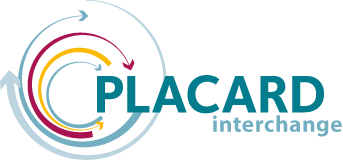In order to improve connections between the climate change adaptation and disaster risk reduction communities, we explored the CCA and DRR landscape, and investigated how the two groups access information. This work inspired and informed development of the Connectivity Hub.
SPINE database
Our database of CCA and DRR actors gives an overview of the knowledge platforms, policy and research initiatives, organisations and stakeholders across Europe at a specific point in time (April 2016). It provided input to the Social Network Analysis (SNA) that investigated the role of selected actors in their networks, and the way that they connect to each other at the European (Social Network Analysis of the PLACARD project stakeholders) and national level (Final release of the network database and associated documentation).
Results from the first SNA led to a paper with recommendations on increasing institutional openess, based on follow-up interviews with CCA & DRR stakeholders (Who is connected with whom? A Social Network Analysis of institutional interactions in the European CCA and DRR Landscape. Sustainability, 12 (3): 1275).
Words matter
There is a huge amount of information on CCA and DRR available, but it is only useful if people can find what they need, and understand what they discover. Knowledge gaps are often due to difficulties in finding relevant information, rather than a lack of availability: we conclude this can addressed through:
- More effective use of language
- Using technology to connect data more effectively
Used together, these approaches could transform how the CCA and DRR communities communicate, share knowledge, and access online information.
Transforming knowledge management
Addressing the climate crisis and achieving a net-zero carbon economy will require ready access to data and information. As a result, knowledge discovery and learning need to be faster and more efficient.
Our latest report highlights the importance of prioritising new and “smart” ways of implementing knowledge management, and improving fundamental principles such as working collaboratively rather than in siloes, strong leadership, and harnessing skills from other domains.




